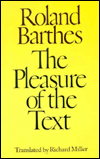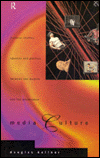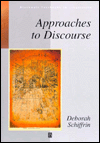Critical Theory
Max Weber’s View of Objectivity in Social Science  Did Weber believe that, even though facts are one thing and values another, social and economic facts could be evaluated without the analysis being influenced by values? And what is the relation of objectivity to values? Could objectivity, for instance, be used to show that one value is superior to another? Or does objectivity apply only to the analysis of facts? Do one’s values or perspective stem from human nature, metaphysical views, personal identity, or is it just as likely that they are a mere construct of culture? Read on …
Did Weber believe that, even though facts are one thing and values another, social and economic facts could be evaluated without the analysis being influenced by values? And what is the relation of objectivity to values? Could objectivity, for instance, be used to show that one value is superior to another? Or does objectivity apply only to the analysis of facts? Do one’s values or perspective stem from human nature, metaphysical views, personal identity, or is it just as likely that they are a mere construct of culture? Read on …
Saussure’s Sign The sign, the signifier, and the signified are concepts of the school of thought known as structuralism, founded by Ferdinand de Saussure, a Swiss linguist, during lectures he gave between 1907 and 1911 at the University of Geneva. His views revolutionized the study of language and inaugurated modern linguistics. The theory also profoundly influenced other disciplines, especially anthropology, sociology, and literary criticism. The central tenet of structuralism is that the phenomena of human life, whether language or media, are not intelligible except through their network of relationships, making the sign and the system (or structure) in which the sign is embedded primary concepts. As such, a sign -for instance, a word -gets its meaning only in relation to or in contrast with other signs in a system of signs. Read more …
Ferdinand de Saussure, a Swiss linguist, during lectures he gave between 1907 and 1911 at the University of Geneva. His views revolutionized the study of language and inaugurated modern linguistics. The theory also profoundly influenced other disciplines, especially anthropology, sociology, and literary criticism. The central tenet of structuralism is that the phenomena of human life, whether language or media, are not intelligible except through their network of relationships, making the sign and the system (or structure) in which the sign is embedded primary concepts. As such, a sign -for instance, a word -gets its meaning only in relation to or in contrast with other signs in a system of signs. Read more …
The Myth of Psychoanalysis: Wittgenstein Contra Freud My central thesis is that if, as Wittgenstein says, Freudian psychoanalysis is based in myth, its application to actual psychological problems does not, indeed cannot, resolve them. Instead, all it can do is clarify them or present them in a different light. Implicit in my argument is that this is how Wittgenstein thought of the results of psychoanalysis, much like he thought of the application of his philosophical technique to philosophical problems, especially those of metaphysics, ethics, and aesthetics. As such, Wittgenstein is also subverting a larger myth: that the insights gained in psychoanalysis lead to the scientific resolution of psychological problems. Read on …
Image over Substance: An Example of Postmodern Politics Max Horkheimer and Theodor Adorno, commenting on Hitler’s propagandistic use of the radio, note “the gigantic fact that the speech that penetrates everywhere replaces its content,”1 a formula that has been taken one step further by television: On TV, the image dominates, overpowering not only the fact of speech but also its content. Read more …
overpowering not only the fact of speech but also its content. Read more …
Foucault: A Lover’s Discourse about Madness and the Media Roland Barthes, writing in the early 1970s, begins The Pleasure of the Text with these words:  Read more …
Read more …
An Analysis of Kellner’s Theory of Media Culture  In an era when the media have grown to be one of the most dominant forms of culture in North American -so dominant, in fact, that the they can now be seen as the pinnacle of commercial culture -an explanatory theory of the media becomes paramount. Yet considering the intimate relationship between culture and media and that, for many, the media have become their culture, a theory that views the media outside the context of culture will be afflicted with myopia. Thus, for completeness, a theory of the media requires a firm connection to culture in its every step. Douglas Kellner, in his book Media Culture: Cultural Studies, Identity and Politics Between the Modern and the Postmodern, sets out to make these connections. Read more …
In an era when the media have grown to be one of the most dominant forms of culture in North American -so dominant, in fact, that the they can now be seen as the pinnacle of commercial culture -an explanatory theory of the media becomes paramount. Yet considering the intimate relationship between culture and media and that, for many, the media have become their culture, a theory that views the media outside the context of culture will be afflicted with myopia. Thus, for completeness, a theory of the media requires a firm connection to culture in its every step. Douglas Kellner, in his book Media Culture: Cultural Studies, Identity and Politics Between the Modern and the Postmodern, sets out to make these connections. Read more …
Why Can’t We Stop Watching TV? Roland Barthes, writing in The Pleasure of the Text, has an explanation for a befuddling recurrence: Why so many people, including myself, watch so much bad TV even when we know it is awful. Barthes’s answer: pleasure. He elaborates thus: Read more …
Using French Social Thought for Media Criticism With a focus on Althusser, Barthes, and Foucault, this essay broadly delineates the theoretical approaches of the three schools in explaining the role of the mass media in society. As I proceed, I enumerate several strengths and weaknesses of each theory and make some comparisons among them. Read more …
Interpretation and Indeterminancy  Throughout the essay, I will argue a hard line: the exact meaning of a speaker’s utterance in a contextualized exchange is often indeterminate. Within the context of the analysis of the teacher-pupil exchange, I will argue for the superiority of interactional linguistics over speech act theory because it reduces the indeterminacy and yields a more principled interpretation, especially when the interactional approach is complemented by elements from other sociologically influenced methods, namely the ethnography of communication and Labovian sociolinguistics. Read on …
Throughout the essay, I will argue a hard line: the exact meaning of a speaker’s utterance in a contextualized exchange is often indeterminate. Within the context of the analysis of the teacher-pupil exchange, I will argue for the superiority of interactional linguistics over speech act theory because it reduces the indeterminacy and yields a more principled interpretation, especially when the interactional approach is complemented by elements from other sociologically influenced methods, namely the ethnography of communication and Labovian sociolinguistics. Read on …
Habermas’ Theory of Discourse Ethics The purpose of this essay is to reveal the central distinctive elements of Jürgen Habermas’ theory of discourse ethics and how his moral theory differs from those of two other prominent philosophers, Immanuel Kant and John Rawls. In unveiling the distinctive qualities of Habermas’ discourse ethics, the fundamental difference between it and Kant’s moral theory, upon which Habermas in part bases his thought, will be explained. Next, in exposing another distinctive element of discourse ethics, a pivotal difference between Habermas’ moral theory and John Rawls’ theory of justice will be elucidated. Read on …
A Wittgensteinian Approach to Discourse Analysis This essay seeks to take Wittgenstein’s influence on discourse analysis a step further by using his writings as the theoretical foundation for an approach to analyzing discourse that is distinct from speech act theory, 
 which stems from the analytic tradition in philosophy, and to suggest that a Wittgenstein-inspired approach may actually be closer in spirit and content to that of an unlikely candidate whose views, in contrast to the analytic school, harbor a distinctly Continental flavor which has come to influence critical theory: Mikhail Bakhtin. Read on …
which stems from the analytic tradition in philosophy, and to suggest that a Wittgenstein-inspired approach may actually be closer in spirit and content to that of an unlikely candidate whose views, in contrast to the analytic school, harbor a distinctly Continental flavor which has come to influence critical theory: Mikhail Bakhtin. Read on …
Philosophy Becomes Psychotherapy. Do you remember that beautiful September during your first year of graduate school when you discovered existential psychoanalysis? There was never a cloudy day.
A Scientific Analysis of Desire?
Short Cuts: A Pithy Remark Steeped in Atitude
Wittgenstein and Freud: Points of Contact and Criticism
Freud’s Notion of Subconscious as a “Means of Representation”
Wittgenstein: A Disciple of Freud?
Psychoanalysis as Weltanschauung
Freud Rebuts Wittgenstein on Verifiability
Indoctrination and Resistance in Psychotherapeutic Dialogue
The Construction of the Double as Social Object.
Max Weber’s Interest in Studying Capitalism
Goals in Reading Max Weber’s Early Works